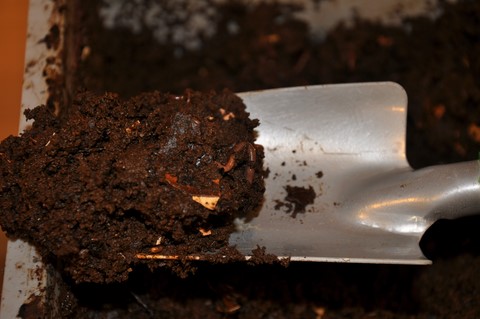Composting
Advantages
- The compost brings essential fertilizing components (nitrogen, phosphorus, potassium, etc).
- It releases them progressively during 3 years.
- The compost increases the pedofauna biodiversity and decrease the density of plants pathogenic nematoda and fungi.
- It allows to the soil to storage more water and more carbon.
- Its use promotes symbiosis between plants and soil living organisms.
Disadvantages
- A soil too rich in humus doesn't suit for all the plants.
- A decease of mycorrhization can be observed in case of soil too rich in nutrients.
- If the compost is not enough mature, the plant roots can rot.
To use the compost for a plantation
The compost is used mixing (30%) with the plantation soil.
It is important to use mature compost : with a dark, thin and uniform texture.
If you are not sur, it is better to spread it on the ground where it will finish to mature and will have too a positive effect.
It is too important to know the quality of the compost (to avoid heavy metals from purification muds).
Wormscomposting
The wormscomposting is a variation of composting where : it's the worms which is the motor of the decomposition.
So we obtain faster a good-quality compost with living organism.
On the other hand, the seeds are intact, because they are not destroyed by the worms composting conditions.










